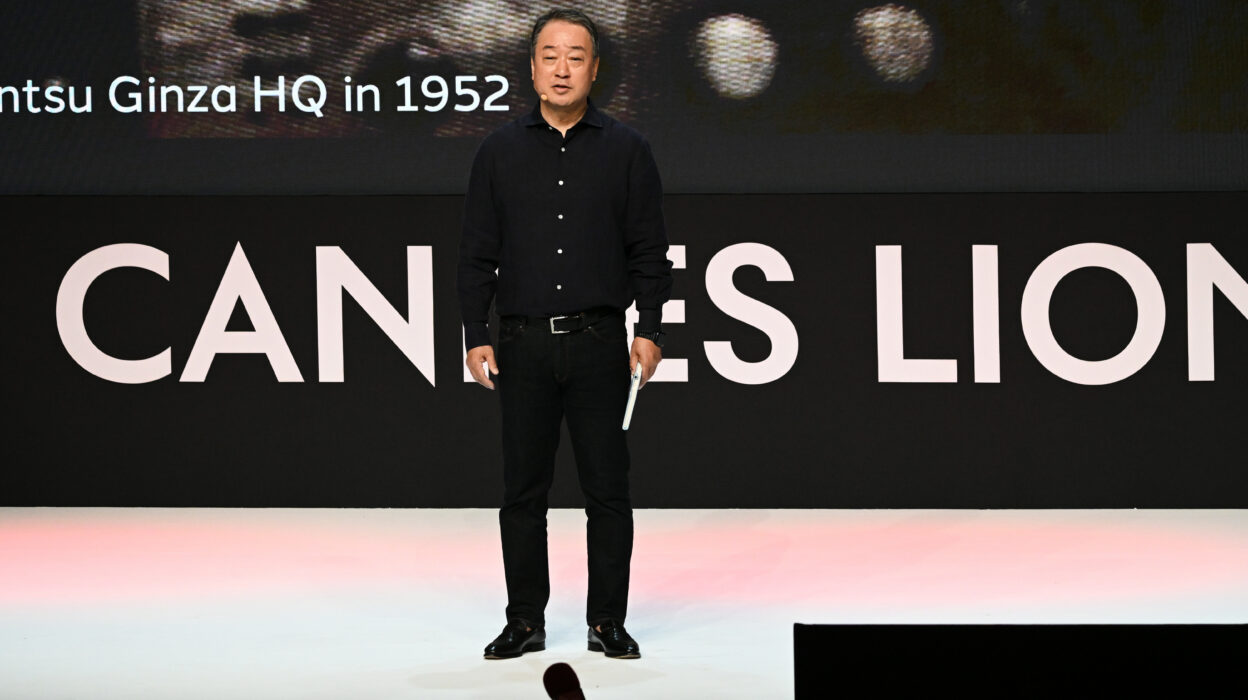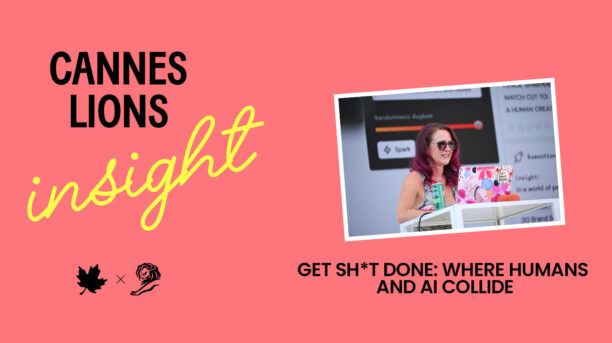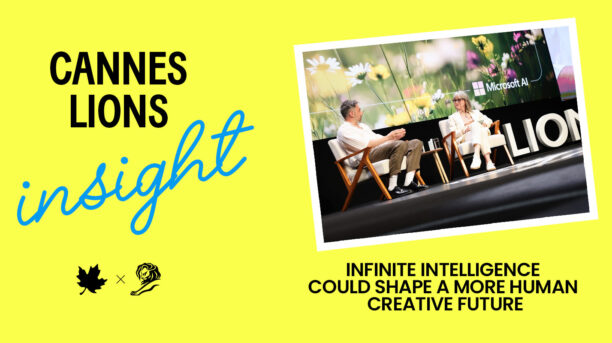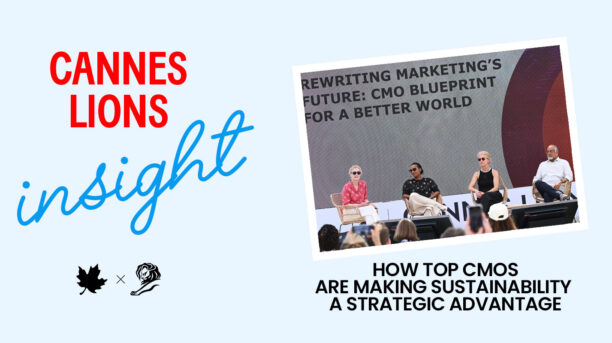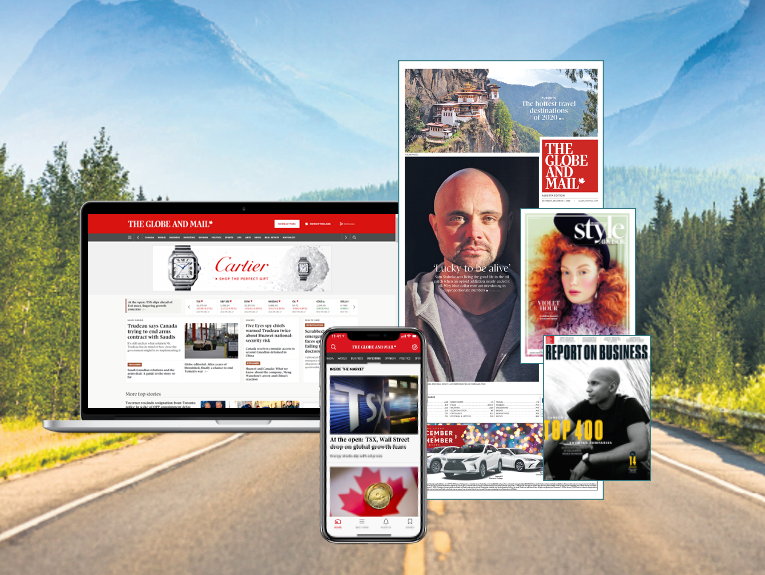Dentsu flaunts its long history of groundbreaking projects at Monday afternoon’s session “Innovating to Impact: 120 Years of Innovation”. Dentsu Global CEO, Hiroshi Igarashi, as well as Dentsu Lab Founder, Yasuharu Sasaki, lead us through Dentsu’s five principles for innovating to impact and the long list of projects that embody these principles.
Early in the session, Igarashi explained that Dentsu never creates innovation for its own sake. Instead, they use innovation to create real-world impact. The five principles below, breakdown their process for producing groundbreaking work and highlight their achievements
- Respect the Past to Create the Future
Sasaki explains that agencies must utilize the rich history of the past in order to mould a better future.
Tokonoma uses an ancient Japanese pot to create a thoughtful modern experience. The project involves scanning the textured surface of the artifact while it spins on a record player. The outcome is an intriguing and reflective piece of music.
Similarly, the Sound of Honda revived the iconic sound of Ayrton Senna’s record-breaking lap, using advanced audio technology to create an immersive experience that connects the past glory with present-day innovation.
- Have an Outlier Perspective
Adopting an outlier perspective means challenging the status quo and transforming norms to discover new possibilities. The Unfiltered History Tour leverages AR to create a museum tour experience which uncovers the uncomfortable truth behind many museum pieces. Unlabeled is a project that created clothing which counteracts AI surveillance.
- Discover New Emotions and Connections
Innovation thrives on the discovery of new emotions and the creation of unique connections. Dentsu uses innovation to make people feel things and empathize in ways they never have before.
Hugtics uses artificial muscles to allow participants to feel a hug even when nobody else is there. The Child Perspective Lab is a large baby face mask which converts spoken words into a baby’s cry. The project allows parents to understand and empathize with a baby’s inability to communicate. By exploring these new emotional landscapes, Dentsu aims to deepen human connections in unexpected ways.

- Mix. Augment. Make New
Dentsu’s fourth principle emphasizes combining diverse elements and technologies to create unprecedented outcomes.
Aeronaut exemplifies this by blending music, virtual reality, and motion capture to create an immersive concert experience for William Patrick Corgan’s first solo album in over a decade. Similarly, Open Meals combines culinary arts with cutting-edge technology to “teleport sushi”
Sasaki summarises this principle powerfully, “Difference makes the difference.”
- Use Technology to Augment Our Humanity
Finally, Dentsu stresses the role of technology in enhancing human experiences and fostering inclusivity.
Scrolling Therapy uses face recognition to help patients suffering from Parkinson’s train their facial muscles. All Players Welcome uses advanced technology to ensure everyone can enjoy and participate in the gaming world. This initiative was capstone with a 15-minute live demonstration of the technology.
Dentsu’s “Innovating to Impact: 120 Years of Innovation” session at Cannes Lions showcased their unwavering dedication to redefining innovation. By respecting the past, adopting outlier perspectives, discovering new emotions, mixing diverse elements, and using technology to enhance human experiences, Dentsu continues to lead the way in creating impactful and meaningful innovations for the future.
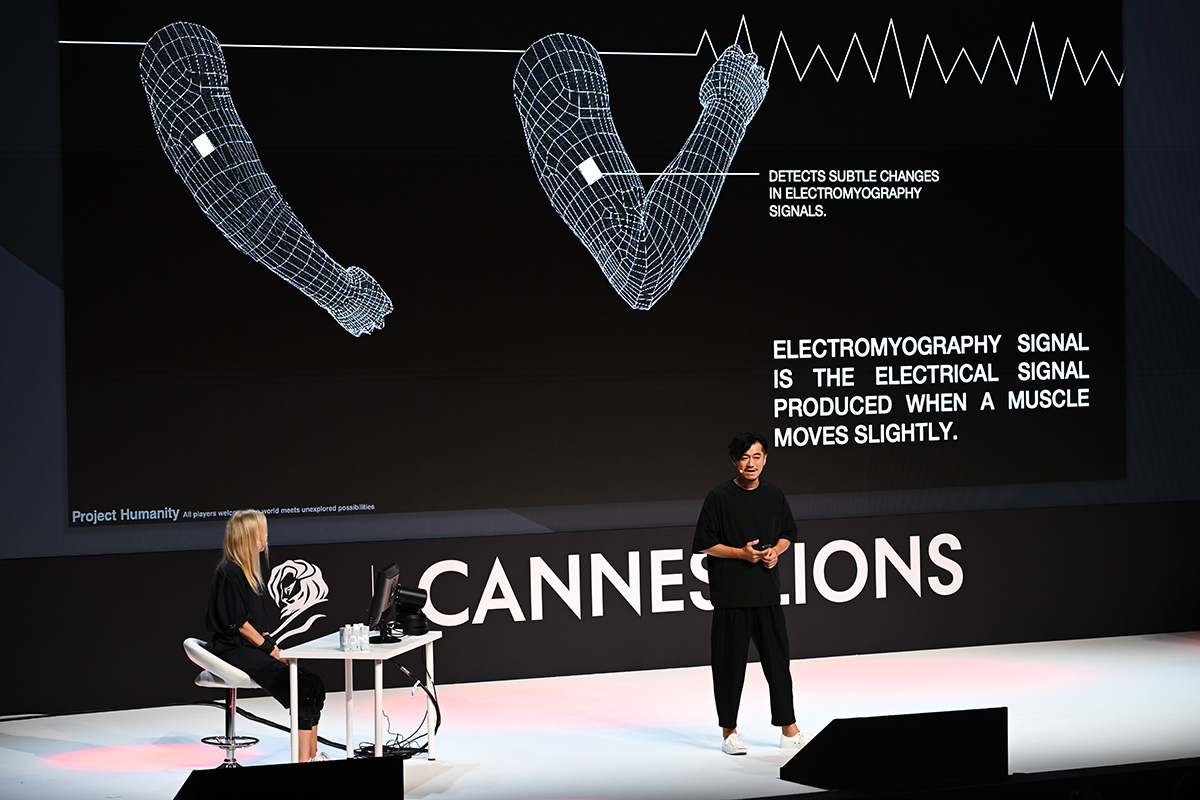
Follow us @globemediagroup on Instagram, LinkedIn, and Twitter to stay in the know.

